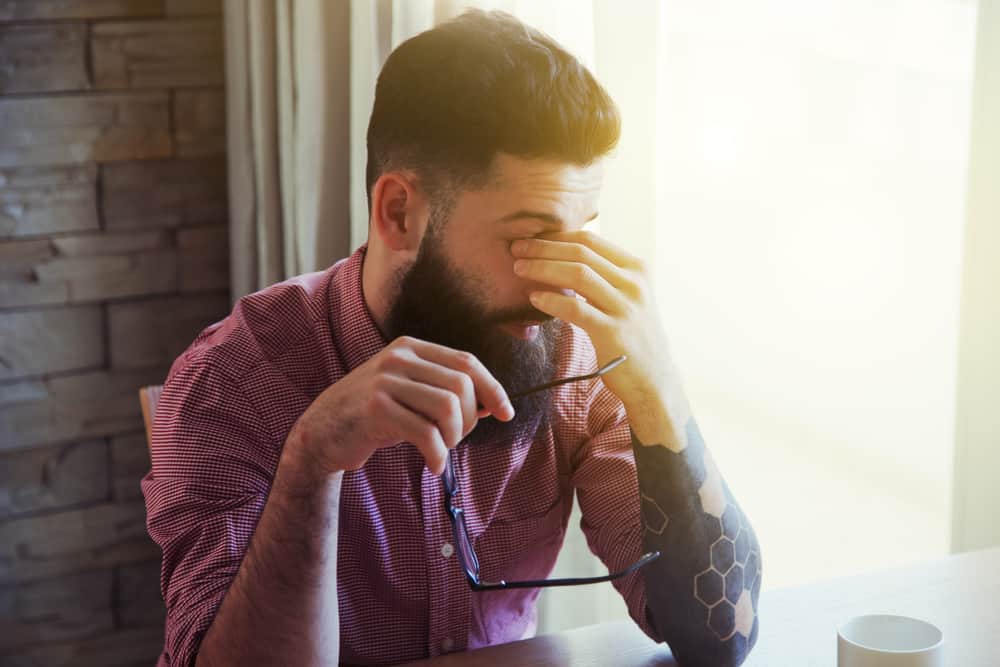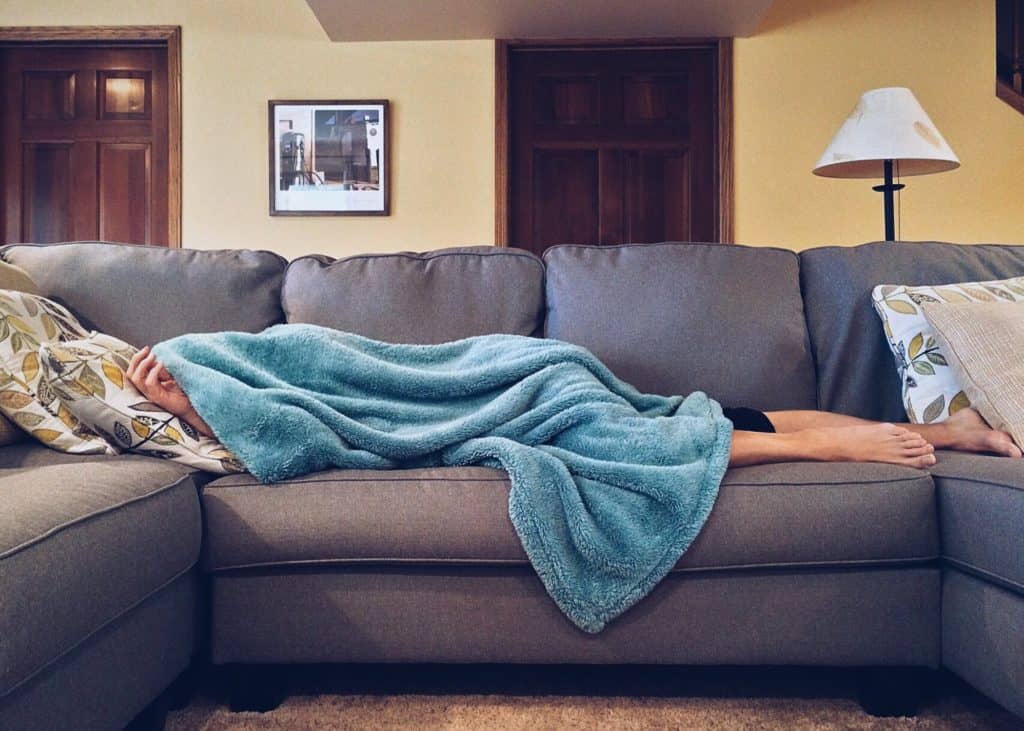If you find yourself in a total heap – physically, emotionally and mentally exhausted, it is likely that you are suffering from a mental health condition referred to as burnout, generally caused by long term stress. You may find yourself unable to complete necessary work/family/household/social activities, and less able to enjoy activities you normally do.
There are many signs and symptoms of burnout, and those of one sufferer may be somewhat different to the next. Some of the most common signs and symptoms of burnout are:
– chronic exhaustion
– sleeping difficulties
– the inability to concentrate and recall information
– feelings of anger and irritability
– decreased happiness and enjoyment
– changes to appetite (increase or decrease)
– reduced productivity
– a weakened immune system
For more detailed information regarding the above, read our article ‘What Are The Signs And Symptoms Of Burnout?’ here.
It is very important that you get on top of burnout as early as possible, so as not to put yourself at risk of further mental health or physical illness. If you or someone you know are suffering from burnout, do not delay in seeking professional help – a professional therapist can help you identify what has caused your burnout and offer professional advice to get you on the road to recovery.
Things You Can Do To Help Yourself Recover From Burnout
Often when we find ourselves burning the candle at both ends, whether it’s at work, home, socially, or all things combined, we find we don’t have the time or energy to take care of number one – ourselves. As cliché as it may sound, there is a lot of truth to the saying “You can’t pour from an empty cup – take care of yourself first”. When we put all our time and energy into other people or projects, we can lose ourselves – both physically and mentally, and wind up burnt-out.
In addition to seeking professional help, it may be worth giving one (or more) of the following things a try to aid your recovery from burnout.
Determine Why You Are Experiencing Burnout
A good place to begin on your journey to recovery is to determine why you are experiencing burnout. The causes of burnout may differ from person to person, and may include one or more aspects of work life, family/home life, and social life.
Work pressures may include a difficult boss, a workload heavier than you can manage, or being part of an unmotivated team.
Family or home life pressures may include significant life changes such as the introduction of a new baby or increased household/care-giving responsibilities while a family member is sick or injured.
Social life pressures may include your organisation of and required attendance at numerous functions for a friend who is soon to be married.
It is important to note that burnout is often caused by more than one factor. If you are struggling to pin what exactly has caused you to feel burnt-out, you may wish to make a note in a ‘stress diary’ at the end of each day as to any situations that caused you to feel stressed and why. This way, you can start to see any patterns and determine whether your stress is coming from just one or a multitude of areas of your life, and will allow you to make appropriate changes moving forward (an important topic to discuss in detail with your chosen professional therapist).
Remember too, that by determining the underlying causes of your burnout, you can work to avoid feeling burnt-out again in the future.
Reset Your Goals
Once you have determined the cause(s) of your burnout, it is a good idea to take some time to sit and think about your goals moving forward (as much as we like to think we can do everything, we aren’t superhumans!). Think about what makes you feel happy and adds meaning to your life. You may wish to split these goals up into categories, if it helps (e.g. life, family, career, travel, hobbies, etc).
An important part of your recovery is learning to say ‘no’ when you need to. When faced with the opportunity to do or be a part of something, ask yourself: “Does this activity align with my goals? Am I feeling energetic enough to complete this activity?” – if the answer to both questions is no, then think carefully before proceeding with the activity. Instead, try to align your actions with your goals, and don’t be afraid to delegate or to rest when you need to.
Make Time For Self Care: Diet, Exercise, Sleep, Relaxation
Review Your Diet
So, what can you do to start to fill your cup back up? One of the best places to start is reviewing your diet, to ensure you are getting optimal energy from what you eat on a day-to-day basis. This doesn’t mean you need to cook fancy meals worthy of Instagram – simply get back to the basics of a healthy balanced diet, including lots of fresh food (rather than processed). It is also a good idea to carry a water bottle with you throughout the day, to ensure you are staying hydrated, as dehydration can further increase tiredness.
Make Regular Exercise Part Of Your Week
In addition to a healthy balanced diet, getting regular exercise (particularly outdoors in the fresh air) can work wonders when you are feeling burnt-out. Regular exercise can help to clear your mind, increase your fitness and elevate your mood. Think of what exercise you enjoy e.g. walking, running, cycling, swimming, yoga, ball sports, dancing, water activities, resistance training.. anything! Just twenty to thirty minutes of gentle exercise a few times per week can help you to better manage burnout.
Ensure You Are Getting Enough Sleep
A lack of sleep is a very common sign of burnout. It is no secret that difficult situations in life are much easier to handle when we feel rested rather than when we are running low on energy.
One of the best things you can do to ensure you are getting enough sleep is to review your sleep hygiene i.e. habits or a routine you follow before you sleep. This may include:
– ensuring adequate down-time before bed (ideally one to two hours at a minimum)
– turning any screen electronics to ‘night mode’ at least one hour before sleeping (blue light keeps us awake)
– undertaking a relaxing activity before bed such as some gentle stretches, a warm cup of peppermint tea or reading a book (one that relaxes rather than stimulates your mind)
– practicing gratitude (what are you thankful for?) and/or mindfulness meditation before sleep (for some basic exercises to get you started, see our article ‘Beginners Guide To Mindfulness Meditation For Depression and Anxiety’ here)
– going to bed at the same time each night (and waking up at the same time each morning)
Book Yourself Some Relaxation Time and Stick To It
When our lives are jam-packed with responsibilities such as work and caring for our family/running a household, it can be very difficult to find a window of time for relaxation. However, it is critical you make time for relaxation, so you can be at your best in all other facets of life.
What activity do you find relaxing? Perhaps enjoying a warm cup of tea or coffee, taking a gentle stroll with your dog, reading a good book, playing video games, drawing, gardening, baking, yoga or watching a movie? The options are endless. Just like exercise, find a relaxing activity you thoroughly enjoy and make time for it (e.g. set yourself a goal at the beginning of the week to find at least one thirty-minute window just for you and do your best to stick to it). You are bound to feel better for it!
Go on a holiday
If your current work and life circumstances allow it, book a holiday for yourself (and your partner/family/friends if you wish). By withdrawing for a few days or weeks from (even some) of what causes you great stress (such as a demanding boss or work deadlines, or never-ending housework) you can distance yourself from the problem and allow yourself to relax and replenish your energy.
Time away can enable you to feel rejuvenated and, if you wish, can give you some time to think about how you can best tackle what is causing you stress when you return home.
So, now you know some of the best activities you can implement yourself to help you manage and recover from burnout. However, in order to ensure you fully recover from burnout and learn how to avoid becoming burnt-out again in future, it is best you see a professional therapist who has experience treating burnout. Contact Blissiree Pty Ltd today for help from our professional team who will help you to recover from burnout and get you back to feeling energised and enjoying life again.








